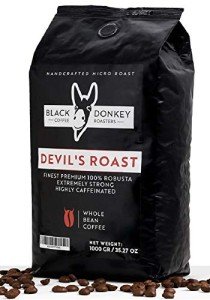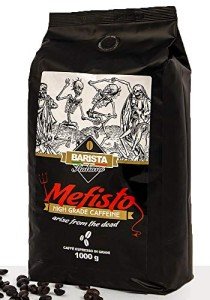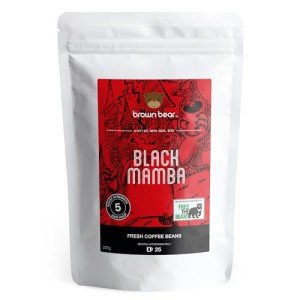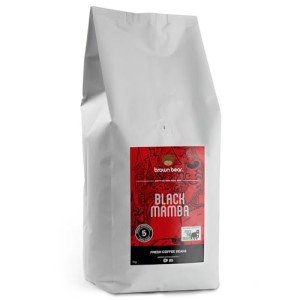Uganda, often lauded for its stunning landscapes and rich cultural heritage, is also home to one of the most distinct coffee varieties in the world—Robusta. Known for its bold flavor and high caffeine content, Uganda's Robusta coffee beans are a staple in both local and international markets. Particularly noteworthy is the dark roast variant, which offers lovers of strong coffee an unparalleled experience. This guide explores Uganda dark roast Robusta coffee beans in detail, guiding coffee enthusiasts through the unique characteristics, brewing techniques, and various advantages offered by this remarkable bean.
Understanding Robusta Coffee
What Is Robusta?
Robusta coffee, scientifically known as Coffea canephora, is one of the two primary species of coffee cultivated worldwide, the other being Arabica. While Arabica often takes the spotlight due to its nuanced flavors and aromatic qualities, Robusta brings its own strengths to the table, particularly in terms of resilience, yield, and flavor profile.
Characteristics of Ugandan Robusta Beans
Ugandan Robusta beans are cultivated at high altitudes, often in volcanic soil, which significantly influences their taste and quality. Here are some defining characteristics:
- Flavor Profile: Known for being earthy, nutty, and sometimes chocolatey, Uganda Robusta is robust and full-bodied, making it a favorite for espresso blends.
- Caffeine Content: Robusta beans have nearly double the caffeine content of Arabica beans, providing a stronger kick and potential health benefits.
- Weather Resistance: Robusta is hardier than Arabica and can thrive in adverse conditions, making it a more sustainable option for farmers.
The Dark Roast Process: A Closer Look
The process of dark roasting Robusta coffee beans involves carefully controlled high-temperature roasting. This practice enhances certain flavor compounds while diminishing others, resulting in a deeper, bolder flavor.
Steps in the Dark Roasting Process:
- Selection: High-quality Uganda Robusta beans are selected for the roasting process based on size and moisture content.
- Roasting: Beans are roasted at temperatures ranging from 430°F to 480°F (220°C to 250°C) for a period of 10 to 20 minutes, depending on the desired roast profile.
- Cooling: Immediately after roasting, beans are rapidly cooled to stop the roasting process.
- Oiling: In some cases, the surface of the dark roast beans may become oily, a characteristic that many coffee drinkers enjoy as it adds to the visual appeal and flavor.
Brewing the Perfect Cup: Coffee Preparation Techniques
To achieve maximum flavor from Uganda dark roast Robusta coffee beans, it’s crucial to utilize the right brewing methods. Here are some popular methods:
Brewing Methods:
- French Press: This method allows the oils and sediments of the coffee to remain in the brew, offering a robust, full-bodied cup.
- Espresso: The intense pressure extraction highlights the bold character of dark roast Robusta, resulting in a rich espresso shot.
- Pour-over: Producing a cleaner cup, this method enhances the coffee's intrinsic flavors, allowing drinkers to appreciate the bean's depth.
- Cold Brew: For a refreshing take, cold brewing introduces a smoother flavor profile, showcasing the natural sweetness of the dark roast.
The Benefits of Uganda Dark Roast Robusta
Uganda dark roast Robusta coffee beans are not just about rich flavors; they also offer several benefits for coffee enthusiasts and casual drinkers alike:
- High Antioxidant Levels: Robusta beans are rich in antioxidants, which can protect the body from free radicals and support overall well-being.
- Enhanced Focus: The high caffeine content sharpens focus and boosts energy, making it a popular choice for those needing an extra kick.
- Affordable Choice: Generally speaking, Robusta coffee is more affordable than Arabica, making it accessible for all coffee lovers.
- Sustainable Farming: Ugandan coffee farmers often engage in sustainable practices, ensuring the preservation of the environment while producing high-quality beans.
Frequently Asked Questions (FAQs)
1. What is the primary difference between Robusta and Arabica coffee?
The primary differences lie in flavor, caffeine content, and plant characteristics. Robusta generally has a stronger, earthier flavor, higher caffeine content, and is grown at lower altitudes compared to Arabica, which has a milder, sweeter profile.
2. Is dark roast coffee stronger than light roast?
While dark roast coffee has a bolder flavor, the caffeine content per bean is slightly lower than that of lighter roasts, as caffeine diminishes with longer roasting times. However, due to the stronger flavor, many perceive dark roasts as "stronger."
3. How should I store coffee beans to maintain freshness?
To maintain freshness, store coffee beans in an airtight container in a cool, dark place. Avoid exposure to light, heat, and moisture, as these factors can negatively impact the beans' flavor.
4. Can I use Uganda dark roast Robusta beans for espresso?
Absolutely! Uganda dark roast Robusta beans are ideal for espresso due to their rich, full-bodied flavor and high caffeine content, delivering a delightful espresso shot.
5. Where can I purchase Uganda dark roast Robusta coffee beans?
Uganda dark roast Robusta coffee beans can be purchased both online and at specialty coffee shops. Many retailers focus on sourcing high-quality, sustainable beans directly from Ugandan farmers.
Uganda dark roast Robusta coffee beans represent more than just a beverage; they symbolize traditions, cultural richness, and unique flavor profiles found exclusively in Uganda. With its bold taste and several benefits, this coffee variety stands as a testament to the country's robust coffee culture. Whether savored brewed or in an espresso form, Uganda dark roast Robusta is a delightful choice for coffee connoisseurs and curious beginners alike. As you explore the world of coffee, let Uganda's finest Robusta beans take you on an unforgettable sensory journey.







